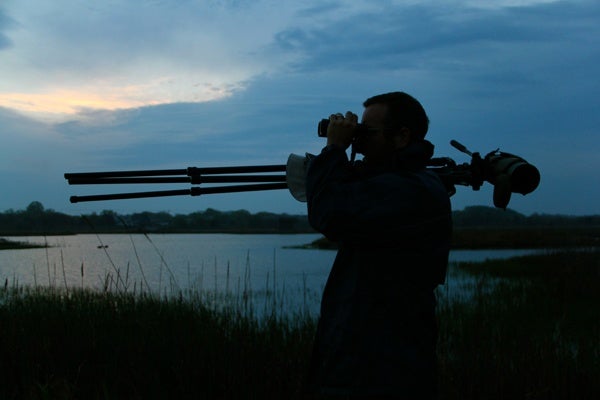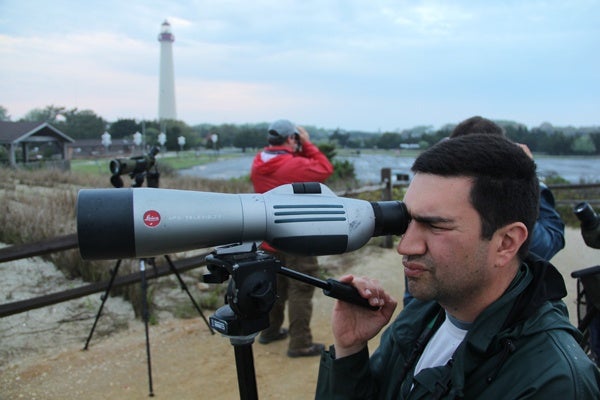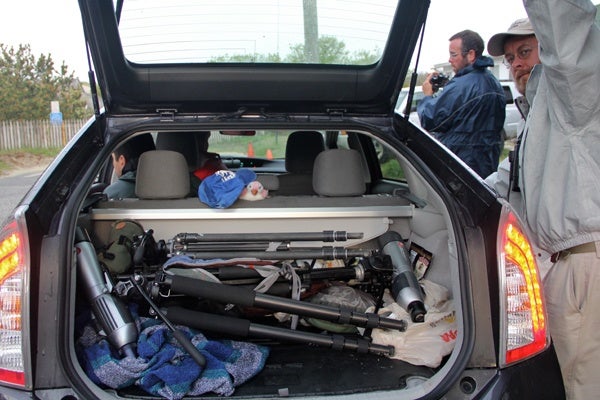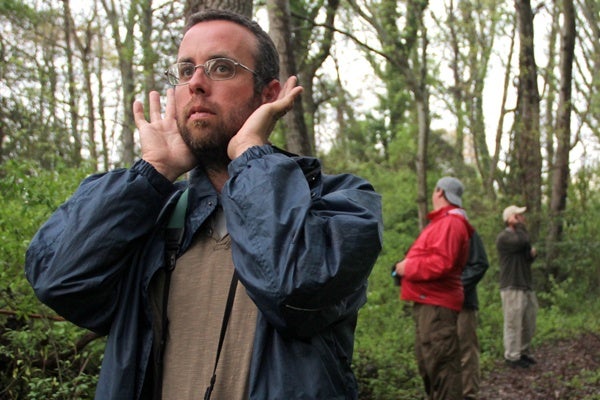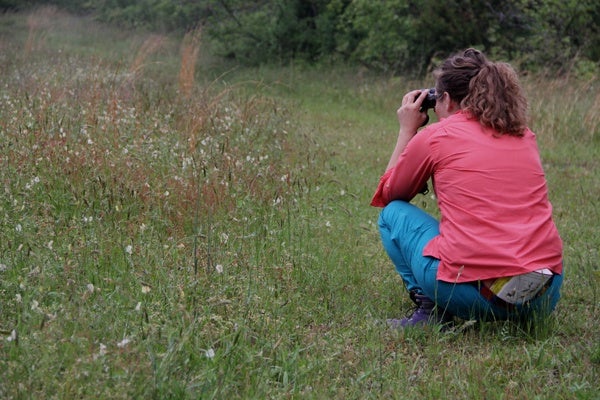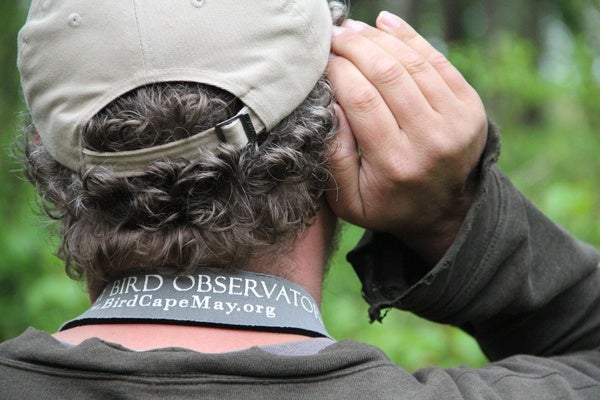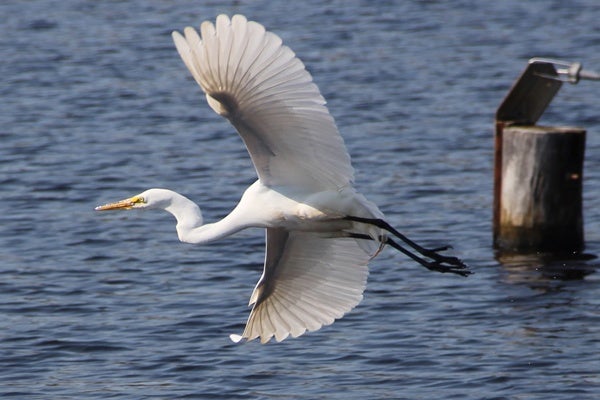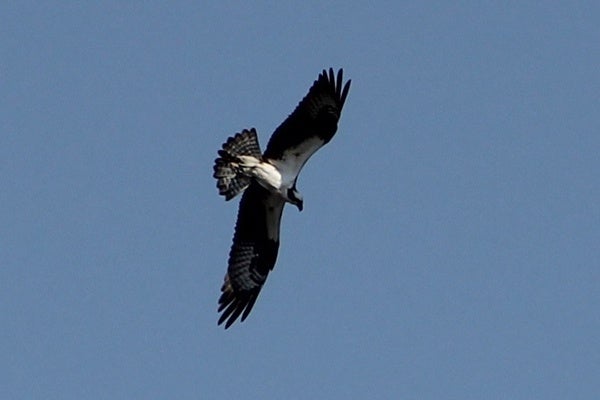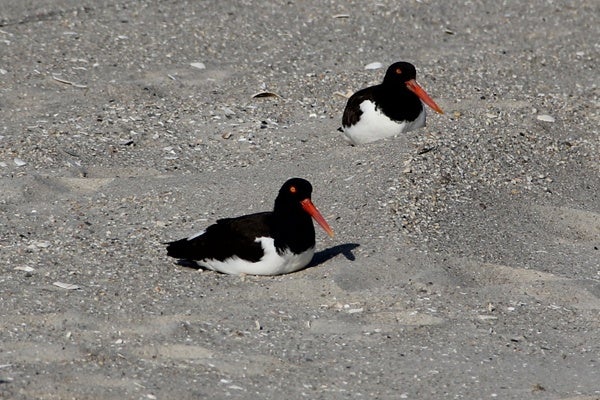World Series of Birding calls the young and old to criss-cross N.J.
Despite heavy rains, hundreds of bird watchers – from grizzled veterans to sprightly novices – spread out all over New Jersey Saturday for the 30th annual World Series of Birding.
Some of the teams that roamed the state from midnight to 11:59 p.m. spotting species have been competing for decades. They feature a century of combined birdwatching skills.
But the team that spotted the most species consisted of three teenagers.
The UMLY B.B. Kingfishers, from the youth division, bested everyone else with 186 species spotted.
Despite their sleepless efforts, the winners get little more than bragging rights. The real purpose of the event is to raise money for land conservation efforts.
“This is not bird watching,” said Pete Dunne, a birding legend who created the marathon event 30 years ago. “This is birding. We’re turbocharged.”
He said the event raised about $1 million this year.
Dunne, 61, has never missed a World Series of Birding, although this year he came close. In March he had a stroke, causing nerve damage on the right side of his body. Walking with a cane and with his arm in a brace, he competed in the “Big Stay” category, wherein he spotted species from a single point: the observation decks of the Cape May Bird Observatory.
Why is the World Series of Birding held in New Jersey? Because the state is recognized internationally as a hot spot for birdwatching, with Cape May County as the epicenter. It it is smack-dab in a migratory path, and it attracts a huge diversity of birds due to it range of ecosystems: seashore, saltmarshes, grass meadows, and dense forests.
“If you want birds, just add habitat,” said Dunne. “New Jersey’s habitat was pretty much pauperized at the end of the 1800’s. There really was no forest. There were less than 50 deer left in the state of New Jersey. Now, our habitat is so much more rich and diverse. And our bird life has followed suit.”
As Saturday’s results indicate, birdwatching may have found its next generation. Dunne says the fastest-growing category of competitive teams is in the youth division. Many teams that began young are still going strong.
For example, the members of team Zen Zugunruhe started 20 years ago when they met, at age 15, during a summer camp for birding. Glen Davis (Cape May, N.J.), David Hedeen (Atlanta, Ga.), Matt Garvey (New York City), and Tait Johansson (Katonah, N.Y.) are now far-flung friends who meet in Cape May every spring.
They scout in advance for locations where different bird species are likely to visit, but everything can change on the day of the competition. This year, scattered rainstorms – at times torrential – messed up the plans of migrating birds and their watchers.
Team Zen Sugunruhe (named after a German word for the anxiety of migrating animals) let a NewsWorks reporter and photographer tag along during their long day of spotting birds.
With high-powered telescopes packed in the hatchback, the team drove a Toyota Prius, slowly, from spot to spot with their heads stuck out the windows, to watch and listen for birds. The car’s hybrid engine is quite, so as not compete with the delicate songs of birds.
Team Zen Zugunruhe is serious, and always has been. Garvey remembers his high school prom, which was held on the eve of a World Series of Birding.
“We left Manhattan just before midnight,” said Garvey. “At the Ritz Carleton in Midtown, my dad picked up us up. We were here at 2 a.m.”
His prom date went along with that plan?
“I met her at Bird Camp, so I guess I cheated a little.”
After 24 straight hours of scanning the skies, team Zen Zugunruhe spotted 146 species of bird to win their division, limited to the area south of Cape May Canal.
“The exuberance is not the same as when you’re a kid,” said Davis. “Some of those birds on the first World Series – we were as happy as we could be, jumping up and down and screaming how happy we were. We can still be brought to that, if the bird is good enough …we still have a lot of satisfaction.”
WHYY is your source for fact-based, in-depth journalism and information. As a nonprofit organization, we rely on financial support from readers like you. Please give today.




